Everybody should have gotten the message by now: prescription opioids are both addictive and dangerous. And the fact that doctors are hesitant to prescribe them hasn’t altered the fact that thousands of people die every year from overdoses. In 2018, about 10.3 million people who had been prescribed an opioid medication ended up misusing it and 47,600 people lost their lives. You don’t have to be a physician to see that the risks of these medicines often outweigh their benefits.
But what are you supposed to do if you’re one of the 50 million adults in the U.S. who struggle with chronic pain? At CORA, we understand that living with chronic pain can be exhausting, and it can affect your mental health. If pain is keeping you from enjoying your life or even from making a living, chances are physical or occupational therapy can help. CORA’s clinicians have the empathy, the know-how and the experience required to help you fight back.
In a study published in the BMC Health Services Journal, patients who received therapy early had a decreased likelihood of requiring advanced treatment procedures later on. At CORA, you’ll find licensed physical and occupational therapists with advanced certifications in manual therapy and pain management skills. Our compassionate clinicians adhere to established practice guidelines designed to ensure optimal outcomes as well as your safety.
Conditions We Can Help You Manage:
- Fibromyalgia
- Osteoarthritis
- Back pain
- Neck pain
- Post-surgical pain
- Chronic fatigue syndrome
- Rheumatoid arthritis
Treatments include:
- Education on pain
- Improve your knowledge and understanding of chronic pain through Pain Neuroscience Education (the science behind why we hurt), how it occurs, and how we can manage it
- Strengthening & Flexibility activities
- Potential side effects of chronic pain include deconditioning and sedentary lifestyle. Strengthening and flexibility exercises are gradually introduced to improve your ability to move efficiently and with less discomfort.
- Manual Therapy
- Hands-on techniques may be used to encourage improved movement in tight joints or muscles and reduce pain
- Education on relaxation & breathing techniques
- Pain can cause tension in the muscles that help us breathe leading to feelings of shortness of breath or more pain. Diaphragmatic breathing can help to relax these muscles and reduce pain.
- Cardiovascular training
- In addition to assisting with the reversal of a sedentary lifestyle, activities such as walking and riding bike can help release endorphins, your body’s natural pain relievers. Endorphins have been linked to improved mood and decreased perception of pain.
- Modalities
- Hot packs, cold packs, ultrasound, etc. have not been found to be beneficial in the literature. However, your physical therapist will determine the appropriateness of these interventions for you.
At CORA, the treatment you receive is based on the clinical expertise of your therapist. The aim is to maximize your independence and tolerance to your daily activities. Opioids aren’t the answer. CORA is.


